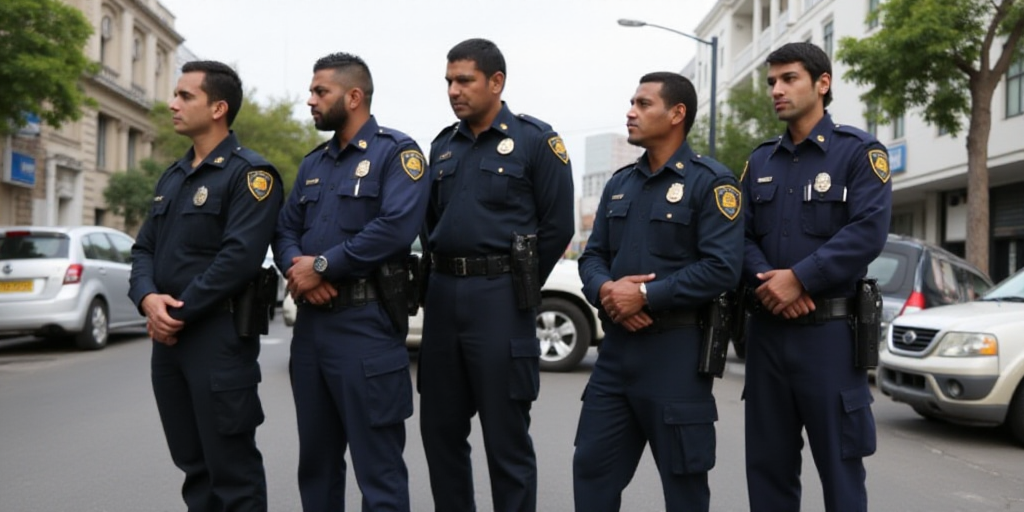Introduction
Six months have passed since the reform to Article 123, Section B of the Mexican Constitution was approved in the Chamber of Deputies without yet being published. The changes stipulate that teachers’, police officers’, doctors’, and nurses’ salaries cannot be lower than the average income of Social Security Institute (IMSS) workers, currently around 17,000 pesos per month.
The State of Municipal Police Officers
Armando Vargas, coordinator of the public security program at Mexico Evalúa, a non-governmental organization (NGO), warns that only 30% of police officers have coverage for basic benefits. This situation, aside from violating rights, hinders the development of professional police officers.
- Only 8% of elements have access to housing credit, putting 92% at risk of property poverty.
-
Less than 70% earn the minimum salary recommended by the Executive Secretariat of the National Public Security System.
Mexico Evalúa’s Proposed Solutions
In response to this dire situation, Mexico Evalúa introduced the Labor Conditions Standard, defining minimum labor benefits that should be guaranteed from federal to municipal levels. It includes social security, equipment, performance bonuses, and institutional loans, based on existing regulations and police officers’ experiences.
The NGO also released the Police Dignification Route, a guide for local governments in four stages: local diagnosis, ideal number of police officers estimation, new benefits cost calculation, and designing a financing plan fitting the municipality’s capabilities.
Property Poverty Among Police Officers
Mariana Campos, Mexico Evalúa’s general director, emphasized that “almost the working conditions condemn municipal police officers to property poverty,” placing them in a high-risk position.
-
“We cannot expect exceptional performance when faced with low salaries, lack of social security, and no development opportunities,” she stated.
-
She also mentioned the need to change incentives for young individuals to join police academies, ensuring motivation for a police career. However, she clarified that without proper tools to protect and provide necessary conditions for a successful police career, this won’t happen.
Constitutional Reform and Salary Discrepancy
Despite the announcement in the 2019 Guardia Nacional Constitutional Reform of developing a diagnosis and integral program for strengthening police force capabilities, the average salary in Mexico for a police officer is 7,940 pesos. This figure falls short of the National Salary Commission’s estimated average of 16,400.63 pesos in their 2024 Dignified Police Salary Proposal.
Data México’s information shows that, in the first quarter of 2024, 80.8% of the workforce were men earning an average salary of 8,030 pesos, while 19.2% were women earning an average of 7,530 pesos.
Half a year has passed since the reform to Article 123, Section B of the Constitution was approved in the Chamber of Deputies without yet being published.
According to the amendment, teachers’, police officers’, doctors’, and nurses’ salaries cannot be lower than the average income of IMSS-affiliated workers, currently around 17,000 pesos.
Key Questions and Answers
- What is the current situation of Mexican police officers regarding benefits? Sadly, seven out of ten municipal police officers lack basic benefits, placing them in property poverty and high-risk situations.
- What does Mexico Evalúa propose to improve the situation? The organization introduced the Labor Conditions Standard and the Police Dignification Route, providing guidelines for local governments to ensure police officers receive adequate benefits and support.
- Why is the salary discrepancy significant? The gap between the proposed dignified police salary and the actual average salary highlights the urgent need for better compensation and working conditions for Mexican police officers.






